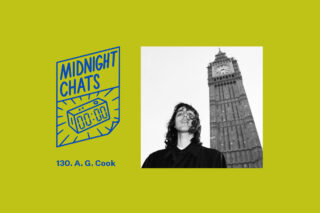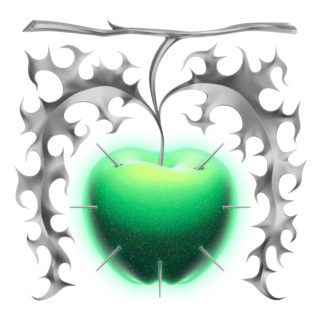Record labels are inherently messy and complicated organisations. On paper they may appear simply tastemaker operations, hand-selecting artists they love and, through releasing their music, forming an identity and developing a following along the way. In reality, even if they can sufficiently get off the ground, they become multi-headed beasts that need to act like an accountancy firm or HR department as much as they do a creative outlet.
In an industry where success is often defined as simply surviving, for record a label to start, breakthrough, thrive and have a genuine paradigm-shifting impact is incredibly rare, especially in an era where Spotify playlists are often more influential than the labels who sign and release the music featured on them. The age of the record label as a buzzy, zeitgeist-shifting epicentre is practically over. Which is what makes PC Music, a label set up by producer A. G. Cook in 2013, such a unique entity. As it announces that after ten years of operating it will cease to release any new music, it leaves behind a legacy that is almost unparalleled in contemporary music. A record label born from seemingly nothing – a few tracks uploaded to Soundcloud – to something that in many ways defined the sound, style, aesthetic and culture of an entire decade.
Cook was brought up in London – the only child of two architects – and was a relative latecomer to music, deciding, on something of a whim, to join the school funk band on guitar in sixth form. At Goldsmiths university he undertook a course literally called Music Computing, and here he reconnected with old school friend Danny L Harle to form Dux Content. Inspired by nostalgic explorations of technology via art in the comedy duo Tim and Eric, a blend of music and technology – both sonically and aesthetically – was baked into Cook’s interests from the off. The natural conclusion was to create an outlet like PC Music (Personal Computer Music), and he launched the label with the aim of “recording people who don’t normally make music and treating them as if they’re a major label artist.”

Cook shunned press to begin with. There were no meticulously planned and prolonged release campaigns, just an endless and spontaneous dumping of new acts and songs for people to catch up with. The label dropped several singles and EPs, spanning around 40 tracks, in its first year from the likes of GFOTY, easyFun, Princess Bambi, Hannah Diamond, Danny L Harle and some of Cook’s solo work. All of it on Soundcloud, all for free. The music was often a brash mix of jittery electronics, euphoric trance, styles of pop that spanned Europe, Japan and Korea, the kind of pitch-shifted vocals normally reserved for pummelling happy hardcore records; all coated with a production style that felt simultaneously retro and futuristic. It was bubblegum pop that was chewed up, spat out and chewed up again. Much of it would become known as its own new genre: hyperpop.
By eschewing standard label conventions and approaches, it was quickly emerging that PC Music was more of a sprawling and interactive online art collective made up of producers and vocalists all collaborating together, rather than just a simple outlet for releases. Aliases and characters were made, along with conceptual cyber figures and fake pop stars like QT (a project consisting of Hayden Dunham, Cook, the late producer SOPHIE and singer Harriet Pittard). QT, who to this day has only released one track ‘Hey QT’, was a popstar whose only sole purpose to exist was seemingly to promote her own energy drink. It immediately and intentionally blurred the lines between marketing and art, fashion and music, irony and sincerity. Was it a satire of our insatiable appetite to consume or just an extension of its methods?




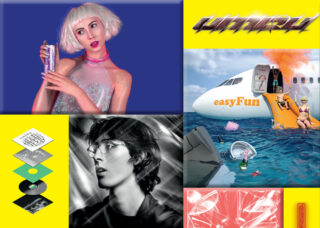

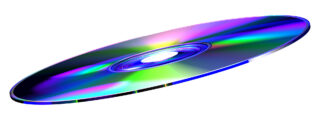 Also inspired by the Japanese concept of kawaii (cuteness), PC Music’s aesthetic was camp and shiny but also had undertones that were harsh and abrasive. Centred around consumerism, cyberculture, advertising and the existence of modern life online (often all chopped up and jammed together, much like the music itself), a slew of titles were thrown at PC Music’s existence: post-modernist, post-ironic, post-internet, post-genre. It was of course brutally divisive. It drew just about every clichéd criticism and accusation you could imagine: “it’s not real music”, “my child could make this”, “hipster bollocks” etc. etc. In some ways it’s understandable, it is the kind of music that is maddening to many; like all the worst parts of early-2000s pop merged with all the worst types of house music, filtered through an all too knowingly antagonistic yet cutesy production style. It felt designed and engineered to push buttons, to prod at the status quo, to drive home poptimist values to patience-testing extremes. For many, it lacked subtlety and was artless art. But it was also overtly, and celebratorily, feminine in its style and execution. Tracks like ‘Every Night’ by Hannah Diamond were almost naive and teenager-like in their lyrical explorations of love. Merged with the blindingly glossy nature of the music, you had something that felt as girly as a fresh copy of
Also inspired by the Japanese concept of kawaii (cuteness), PC Music’s aesthetic was camp and shiny but also had undertones that were harsh and abrasive. Centred around consumerism, cyberculture, advertising and the existence of modern life online (often all chopped up and jammed together, much like the music itself), a slew of titles were thrown at PC Music’s existence: post-modernist, post-ironic, post-internet, post-genre. It was of course brutally divisive. It drew just about every clichéd criticism and accusation you could imagine: “it’s not real music”, “my child could make this”, “hipster bollocks” etc. etc. In some ways it’s understandable, it is the kind of music that is maddening to many; like all the worst parts of early-2000s pop merged with all the worst types of house music, filtered through an all too knowingly antagonistic yet cutesy production style. It felt designed and engineered to push buttons, to prod at the status quo, to drive home poptimist values to patience-testing extremes. For many, it lacked subtlety and was artless art. But it was also overtly, and celebratorily, feminine in its style and execution. Tracks like ‘Every Night’ by Hannah Diamond were almost naive and teenager-like in their lyrical explorations of love. Merged with the blindingly glossy nature of the music, you had something that felt as girly as a fresh copy of  Needless to say, it confused the hell out of people. Was it “the future of pop or contemptuous parody?” asked
Needless to say, it confused the hell out of people. Was it “the future of pop or contemptuous parody?” asked 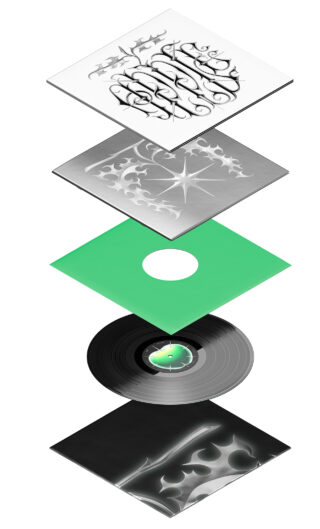 Over the years the label’s role shifted however. Despite hyperpop being a term that had been following the label around since 2014, by 2018 Spotify had deemed that enough activity around it existed for it to be officially declared a genre. It got its own officially curated Spotify playlist. All of a sudden, teenage bedroom producers like osquinn would blow up overnight, reaching streams in the millions after being included on it. When Cook did a takeover of the playlist, adding tracks by the likes of J Dilla and Kate Bush, he received kick back from the next wave of hyperpop producers such as osquinn. Times were changing, but what a compliment for the universe Cook has built: the fact that something PC Music was so instrumental in creating and popularising had now evolved into something more fluid and indefinable than ever, gaining new syles, definitions and interpretations, is perhaps the most fitting testimony to a label that was always rooted in evading easy, lazy categorisation.
Over the years the label’s role shifted however. Despite hyperpop being a term that had been following the label around since 2014, by 2018 Spotify had deemed that enough activity around it existed for it to be officially declared a genre. It got its own officially curated Spotify playlist. All of a sudden, teenage bedroom producers like osquinn would blow up overnight, reaching streams in the millions after being included on it. When Cook did a takeover of the playlist, adding tracks by the likes of J Dilla and Kate Bush, he received kick back from the next wave of hyperpop producers such as osquinn. Times were changing, but what a compliment for the universe Cook has built: the fact that something PC Music was so instrumental in creating and popularising had now evolved into something more fluid and indefinable than ever, gaining new syles, definitions and interpretations, is perhaps the most fitting testimony to a label that was always rooted in evading easy, lazy categorisation. 
